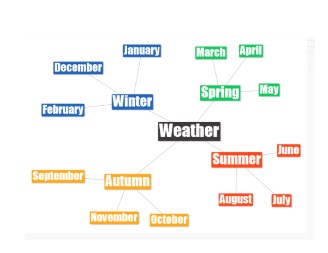LANGUAGE
At Eastwards Consortium, our focus is primarily on educating and developing the next generation of our society. This section showcases off our ‘Wellcomm Primary’ activity set, and below you will find a set of tabs which depict these tasks further. If you find children are struggling with a task or, on the other hand, passing with flying colours, indications and suggestions are proposed in each section to ensure you keep all children challenged and on-task as much as possible.
To view the various parts of each activity, simply click on the respective tab and watch it magically appear!
TO BE ABLE TO LEARN, REMEMBER AND USE APPROPRIATE VOCABULARY
MAIN ACTIVITY
- Learn vocabulary by creating a word web. Speak to your child’s class teacher about what topics your child is currently learning in Science, Maths, English, History or Geography. Ask for a list of 10+ key vocabulary they need to learn. Alternatively, you may be able to get this information from the school website or from a Knowledge Organiser sent home by the school. This activity is not designed to be completed in one session but should be revisited throughout the weeks/half term of the topic.
- Write the Topic title in the centre of a piece of paper to create your word web. Add the keywords around the topic title (see picture below for support).
- Discuss the words in detail together and discuss what the words mean. Look at what letter they start with and how they are spelt – do they match any spelling patterns? Can you think of rhyming words? Draw pictures or write phrases next to the words to help your child remember what the words mean.
- Look the words up in a dictionary (you can also use an online dictionary like https://kids.wordsmyth.net/we/).
 Try to include descriptive language such as:
Try to include descriptive language such as:
- What does it feel/look/smell/taste/sound like?
- Where would you find it?
- What do you do with it?
- What category does it belong to?
- What is related to?
- Also try to include descriptions about how the word sounds:
- What sound does the word begin with?
- What sound does it end with?
- How many syllables does the word have?
- What does it rhyme with?
- Support the child to talk about any prior knowledge they have about the word during your discussion. As your child learns more about the topic at school, discuss which words they have used and what tasks they completed at school. Can they add extra words to the word web?
- Ask your child to put the key words into a sentence.
HOW CAN WE MAKE THIS ACTIVITY MORE CHALLENGING?
- Choose more complex vocabulary.
- Talk about more complex features of the word, such as things that mean the same (synonyms) and things that mean the opposite (antonyms).
- Ask your child to complete independent research on additional key words and their meanings linked to the same topic. They could use the internet or visit a library.
- Get your child to explain to another family member (e.g. grandparents/aunt/uncle) what they have learning about using their topic web.
HOW CAN WE MAKE THIS ACTIVITY EASIER?
- Provide the child with 5 key words to start with.
- Support the pupil to answer questions by offering a choice of information.
- Assist with phonic/spelling support.
- Explain the meaning of the word and then get your child to repeat it back to you in their own words.
ADDITIONAL ACTIVITIES:
- Use websites like BBC Bitesize to practice:
https://www.bbc.co.uk/bitesize/primary
- Find out new vocabulary using the Ninja ‘Word of the Day’
https://vocabularyninja.co.uk/word-of-the-day/
- Some fun vocabulary games that can be played at home and at school
- Use this fabulous visual dictionary to develop and extend your word webhttps://visuwords.com
- Use a workbook to develop vocabulary – this one suggest just 10 minutes per day! https://www.amazon.co.uk/Minutes-Vocabulary-Ages-Stage-Workbooks/dp/0241183855/ref=asc_df_0241183855/
Word games
Online:
https://games.word.tips/games/word-scramble
https://www.merriam-webster.com/games
https://www.topmarks.co.uk/Search.aspx?q=vocabulary
Apps (available on Android and iPhone):
Wordsmith
Vocab Victor English Word Game
World’s Worst Pet – Vocabulary (iPhone only)

